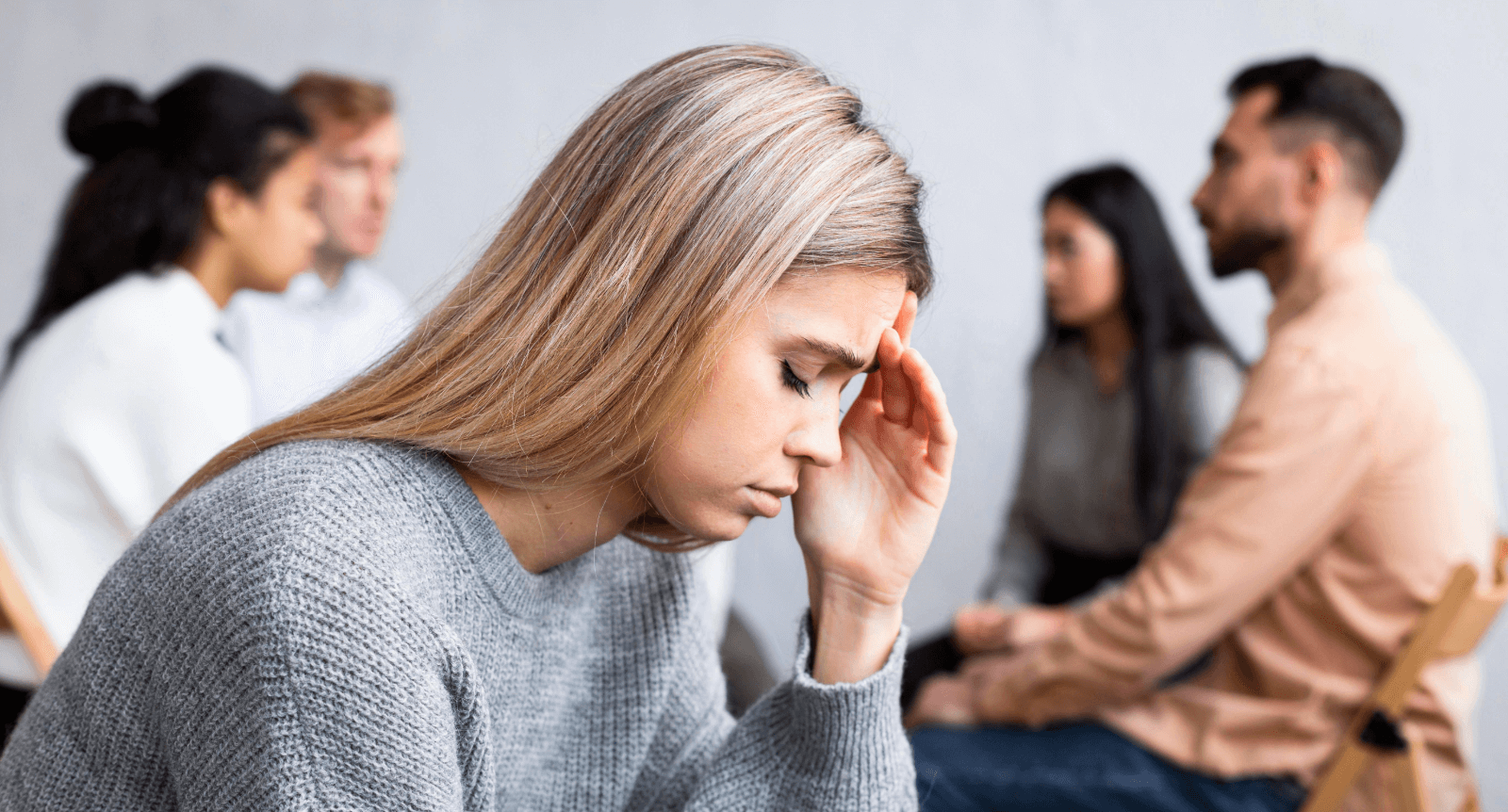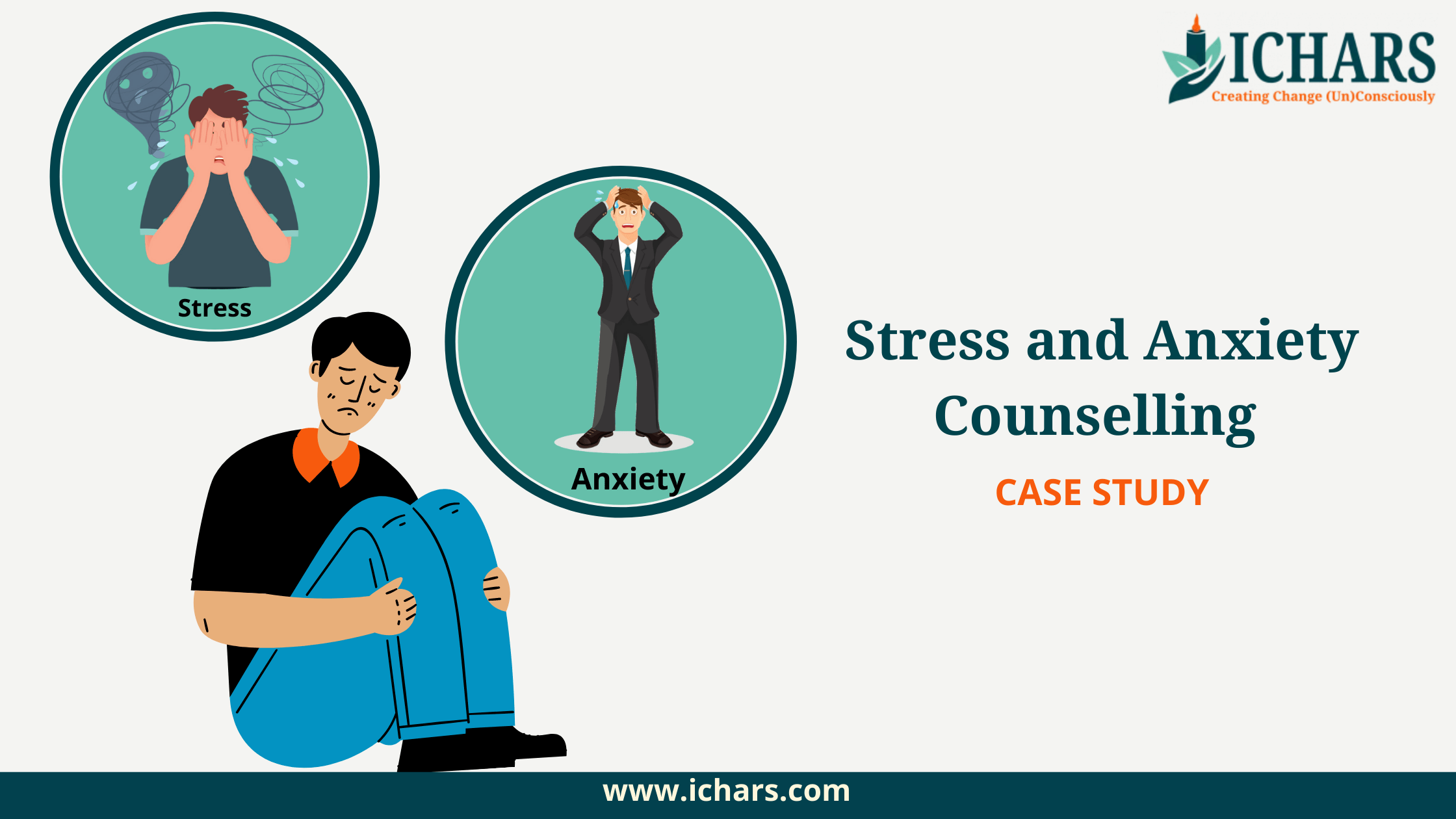Discreet care from a licensed therapist for anxiety in your area
Discreet care from a licensed therapist for anxiety in your area
Blog Article
Exploring Various Strategies in Therapy for Anxiety Problem for Long-term Change
When taking on stress and anxiety disorders, it's vital to explore a selection of therapy methods. Each technique offers special insights and tools to aid you manage your signs and symptoms efficiently. You could locate that integrating strategies can produce the most effective results. Nonetheless, recognizing the subtleties of these approaches is essential to fostering long lasting modification. What happens if the appropriate combination could launch a new degree of psychological well-being for you?
Comprehending Anxiety Conditions: A Brief Review
Stress and anxiety conditions, which affect countless people worldwide, can greatly affect life. You could experience overwhelming sensations of worry or fret that seem irrepressible. These feelings can cause physical symptoms like a racing heart, sweating, or also dizziness. Usual sorts of anxiety conditions consist of generalized anxiousness disorder, panic condition, and social anxiety problem. Each has distinct indications, but they all share a tendency to interrupt your regular and relationships.Understanding the root creates of your anxiety is important. It might come from genetics, mind chemistry, or life experiences. Acknowledging your triggers can aid you manage your actions much better. It's crucial to keep in mind that you're not the only one in this struggle. Many individuals encounter similar obstacles, and seeking assistance is a strong step towards feeling much better. By finding out about anxiety disorders, you're already on the path to understanding and managing your problem better.
Cognitive-Behavioral Therapy: Challenging Adverse Thought Patterns

Recognizing Adverse Idea Triggers
Identifying the details triggers behind your unfavorable thoughts can be essential in managing stress and anxiety when you experience minutes of distress. Beginning by taking note of circumstances that prompt feelings of concern or worry. Is it a congested area, a forthcoming due date, or a conversation with particular individuals? Write these circumstances in a journal. This will assist you recognize patterns in your reasoning. Also, notice physical sensations that accompany your negative thoughts, like a racing heart or rigidity in your upper body. By identifying these triggers, you gain understanding into what's sustaining your stress and anxiety. Recognizing these connections is the very first step in challenging those ideas and inevitably restoring control over your psychological reactions.

Changing Ideas With Positives
Testing negative idea patterns is a crucial step in changing your way of thinking and minimizing anxiety. You might commonly locate on your own entraped in cycles of insecurity or disastrous reasoning. Rather of letting these thoughts dictate your sensations, practice replacing them with favorable affirmations or reasonable choices. For circumstances, when you believe, "I can not manage this," change it to, "I can manage difficulties one step at a time (Counseling services for anxiety)." This basic modification can greatly affect your emotional state. Consistently identifying and countering these unfavorable thoughts helps produce a healthier internal dialogue. Bear in mind, it takes some time and initiative, but constantly exercising this technique can cause long-term change, encouraging you to face anxiousness with renewed confidence and durability
Building Coping Methods With Each Other
Replacing negative ideas is only the start of managing stress and anxiety efficiently. To develop long-term adjustment, you require to construct coping approaches that equip you. Cognitive-Behavioral Treatment (CBT) aids you recognize and test those purposeless idea patterns. With each other, you and your counselor can check out how these thoughts influence your feelings and behaviors.Start by developing useful techniques, like journaling or mindfulness workouts, that allow you to confront anxiety head-on. When you face your worries gradually, you'll find out to respond in a different way.

Mindfulness and Acceptance-Based Approaches: Cultivating Present-Moment Understanding
As you navigate the intricacies of stress and anxiety, incorporating mindfulness and acceptance-based strategies can substantially improve your ability to grow present-moment recognition. By focusing on the present moment, you'll discover that you can observe your thoughts and sensations without judgment. This technique assists you acknowledge your anxiousness without feeling overwhelmed by it.Engaging in mindfulness exercises, such as deep breathing, body scans, or guided meditations, enables you to ground on your own in your existing experience. Acceptance-based techniques motivate you to accept your feelings instead of combat against them. When you accept your feelings, they shed their power over you.Incorporating these practices into your everyday regimen can change how you react to anxiousness. You'll establish resilience and discover to browse demanding circumstances with higher simplicity. Ultimately, cultivating present-moment awareness lays the foundation for long lasting adjustment, empowering you to lead a much more satisfying life.
Exposure Therapy: Facing Concerns Slowly
Direct exposure therapy helps you confront your anxieties in a gradual way, making it less overwhelming. here You'll learn strategies to face anxiety-provoking scenarios step by action, while additionally developing coping approaches to handle your responses. This method empowers you to take control and lower anxiety over time.
Steady Exposure Methods
When dealing with anxiety, slowly challenging your fears can be a powerful means to gain back control. This technique, called progressive exposure, includes gradually exposing on your own to the circumstances or objects that cause your stress and anxiety. Start with much less challenging scenarios and progressively function your method approximately even more tough ones. For circumstances, if you're scared of public speaking, you could begin by speaking in front of a mirror, then proceed to sharing ideas with a pal, and ultimately deal with a little team. Each action assists desensitize you to the concern, developing your confidence with time. Bear in mind, it's vital to rate on your own and commemorate little success as you move with this process, reinforcing your ability to manage stress and anxiety properly.
Structure Coping Techniques
Building effective coping techniques is vital for managing anxiety, particularly as you confront your concerns gradually. One effective approach is exposure treatment, where you start by facing your concerns in a controlled way. Begin with much less frightening circumstances and gradually function your way as much as more challenging situations. This steady exposure helps desensitize you to anxiety causes, making them less overwhelming.Incorporate leisure methods, such as deep breathing or mindfulness, to relax your mind throughout exposure. Track your progress, commemorating tiny victories along the way to increase your self-confidence. Bear in mind, it's all right to take your time; the goal isn't excellence but constant enhancement. By developing these approaches, you'll encourage on your own to navigate stress and anxiety and welcome life extra totally.
Psychodynamic Treatment: Revealing Source of Stress And Anxiety
Psychodynamic treatment discovers the subconscious mind, exposing the source of your stress and anxiety - Counseling services for anxiety. By examining your ideas, sensations, and previous experiences, this strategy assists you discover underlying problems and unresolved issues that may add to your existing stress and anxiety. You'll collaborate with a specialist to check out childhood experiences, partnerships, and emotional patterns that shape your actions today.As you gain insight into these much deeper layers of your mind, you'll begin to acknowledge exactly how previous occasions affect your present actions. This understanding can cause catharsis, permitting you to process emotions you may have suppressed.Through the healing connection, you can additionally determine protection mechanisms that might have developed gradually, offering a clearer path to transform. Inevitably, psychodynamic therapy outfits you with the devices to resolve your stress and anxiety at its core, promoting lasting transformation in your emotional wellness
Integrative and All Natural Strategies: Incorporating Techniques for Greater Efficiency
Integrating numerous restorative techniques can boost your journey towards managing anxiousness extra properly. By integrating elements from cognitive-behavioral treatment, mindfulness techniques, and holistic strategies, you can develop a customized method that resolves your one-of-a-kind demands. As an example, you may utilize cognitive-behavioral methods to challenge negative idea patterns while including mindfulness workouts to ground yourself in the here and now moment.Additionally, checking out alternative methods such as yoga or reflection can promote relaxation and decrease stress and anxiety signs. This mix allows you to establish better self-awareness and resilience.Experimenting with these diverse methods can help you uncover what resonates most with you. Bear in mind, it has to do with locating a synergy that functions, instead of sticking to a single strategy. This integrative approach not just offers immediate alleviation but also cultivates long-term skills for taking care of anxiety, equipping you to recover control over your life.
The Function of Support Systems: Structure Resilience Via Connection
While it may seem that handling stress and anxiety is a solitary trip, having a solid support group can play a necessary role in your resilience. Surrounding yourself with empathetic buddies, household, or support groups develops a secure room where you can freely share your sensations and experiences. You advise on your own that you're not alone in this struggle.These partnerships supply support and can supply useful coping methods that have worked for others when you link with others. It's also an opportunity to obtain viewpoint; friends can aid you see situations in different ways, lowering feelings of isolation.Moreover, psychological support fosters a feeling of belonging, which can significantly minimize stress and anxiety signs and symptoms. By leaning on your support group, you can develop durability and deal with obstacles much more efficiently. Remember, connecting for help is a sign of toughness, and it can make all the difference in your journey toward taking care of stress and anxiety.
Frequently Asked Inquiries
What Are the Typical Signs And Symptoms of Anxiousness Disorders?
You could experience uneasyness, tiredness, trouble focusing, irritability, muscle stress, and sleep disruptions. Physical symptoms can consist of fast heart beat, sweating, and shivering. Acknowledging these signs early can aid you look for proper support and therapy.

For How Long Does Therapy Normally Last for Stress And Anxiety Disorders?
Therapy for stress and anxiety problems generally lasts anywhere from a couple of weeks to numerous months. It really depends upon your specific needs, progress, and the strategies your therapist uses to help you handle your stress and anxiety efficiently.
Can Medication Be Utilized Together With Therapy for Anxiousness?
Yes, medication can definitely be made use of together with therapy for anxiousness. Integrating both approaches usually improves therapy efficiency, assisting you manage signs and symptoms while exploring underlying problems with therapy. Constantly consult your doctor for individualized advice.
Exist Self-Help Techniques for Taking Care Of Anxiousness?
Yes, there are a number of self-help methods for handling stress and anxiety. You can exercise mindfulness, involve in routine exercise, keep a balanced diet regimen, develop a routine, and make use of deep breathing techniques to aid reduce stress and anxiety signs successfully.
How Do I Know if I Required Specialist Help for Stress And Anxiety?
You need to think about looking for specialist assistance for stress and anxiety if it disrupts everyday life, causes substantial distress, or if self-help methods aren't working. Depend on your impulses; getting to out can result in far better coping abilities and support. Typical types of stress and anxiety problems consist of generalised anxiousness problem, panic disorder, and social anxiety condition. When you run into minutes of distress, acknowledging the details triggers behind your adverse thoughts can be vital in managing anxiousness. Replacing unfavorable thoughts is only the beginning of taking care of anxiousness efficiently. By examining your thoughts, sensations, and previous experiences, this strategy aids you uncover underlying disputes and unsettled concerns that might contribute to your current anxiousness. It's additionally a chance to acquire viewpoint; close friends can aid you see scenarios in a different way, minimizing sensations of isolation (Counseling services for anxiety).Moreover, emotional support cultivates a feeling of belonging, which can significantly reduce stress and anxiety symptoms
Report this page